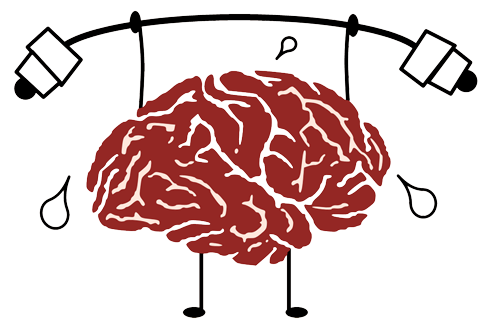 Are you looking to boost your memory, be more productive, and prevent mental aging? It’s possible if you gradually add these simple and natural strategies to your daily routine. Incorporating them can boost your brain power which can affect every aspect of your life from learning, working and playing to personality and memory.
Are you looking to boost your memory, be more productive, and prevent mental aging? It’s possible if you gradually add these simple and natural strategies to your daily routine. Incorporating them can boost your brain power which can affect every aspect of your life from learning, working and playing to personality and memory.
- Stabilze your blood sugar: Blood sugar (glucose) is critical for the brain. The brain needs a steady supply of glucose all the time to function properly. About 30 percent of glucose in your blood is used by the brain so when your blood sugar drops so does your brain function! Subsequently, we would feel hangry (angry when you’re hungry), less focused, more tired, and less productive. When our blood sugar drops, it affects the production of brain chemicals like serotonin, dopamine, and GABA which can result in depression, decreased motivation, being snappy with little incidences and decreased ability to handle stress.
- Eat some protein (or a combo of protein, fat, and carbs) with each meal and snack.
- Don’t skip meals. Don’t go overlong between eating.
- Increase circulation and oxygen to the brain with physical activity. Exercise can cause a release of brain-derived neurotrophic factor (BDNF) which strengthens the nerve cells interconnections and helps nerves grow. Exercise positively impacts aspects of the brain such as depression, focus, memory, and learning. Additional benefits include boosting the immune system and balancing blood sugar.
- Incorporate light to moderate exercise and/or
- Incorporate high-intensity exercise. (click here to read our earlier article on why and how to create your own high-intensity interval training program)
- Feed your brain by eating a non-inflammatory diet with brain supporting nutrients. The brain can be inflamed from trauma, stress, food sensitivities, inflammatory foods, toxins and more. An inflamed brain can cause brain fog, depression, unclear thoughts, and memory issues. It can also trigger systemic inflammation causing joint pain, digestive issues, skin disorders and more. An important start to decreasing brain inflammation begins with your diet:
- Include lots of non-starchy vegetables like kale, collards, broccoli, spinach, onions, etc.
- Choose organic vegetables and fruits (berries, pitted fruits, etc) when possible (with more vegetables than fruits).
- Eat organic free-range meat, poultry, and wild fish (salmon, sardines, anchovies). Cold water fish has omega 3 essential fatty acids like DHA which will feed the brain. Omega 3’s Like EPA and DHA can also be found in grass-fed meat, free-range eggs, chia seeds, flax seed, and raw nuts.
- Eat a healthy amount of “good” fats, such as avocado, coconut oil, and extra virgin olive oil.
- Add natural probiotics such as fermented vegetables or a probiotic. Your gut is like your second brain. The gut bacteria transmit information to your brain and impact brain function, mood and behavior. Your gut bacteria is dependent on your diet and vulnerable to your lifestyle. For example, consuming a lot of processed foods and sweets can destroy your healthy microflora and can feed bacteria and yeast creating an imbalance in your gut.
- Add starchy plants like yams and sweet potatoes in moderation.
- Drink plenty of water (half your weight in ounces).
- Eat adequate food sources of B12. B12 is available in its natural form only in animal food sources like seafood, beef, chicken, and eggs. B12 is important to keep the brain healthy and combat brain shrinkage. B12 can be supplemented if you’re not getting it in your diet.
- Avoid inflammatory foods: gluten (wheat, rye, spelt, barley, couscous, etc), dairy, sugar, fried and processed foods.
- Get adequate sleep.If at all possible, go to bed at the same time every night and wake up at the same time every morning. Go to sleep as early as possible ie before 11pm. Sleep is crucial to enhance memory, to improve performance of challenging skills, helps with creativity, and more!
- Stay Mentally Active: You can boost brain function by learning! Ie reading, crossword puzzles, learning to speak a foreign language, learning to play a musical instrument or participating in social or physical activities.
If you’re still having issues with mental sharpness, memory issues, fatigue or brain fog after following these tips, give us a call at (919) 791-0445 so we can help you get to the root of your health problems.
